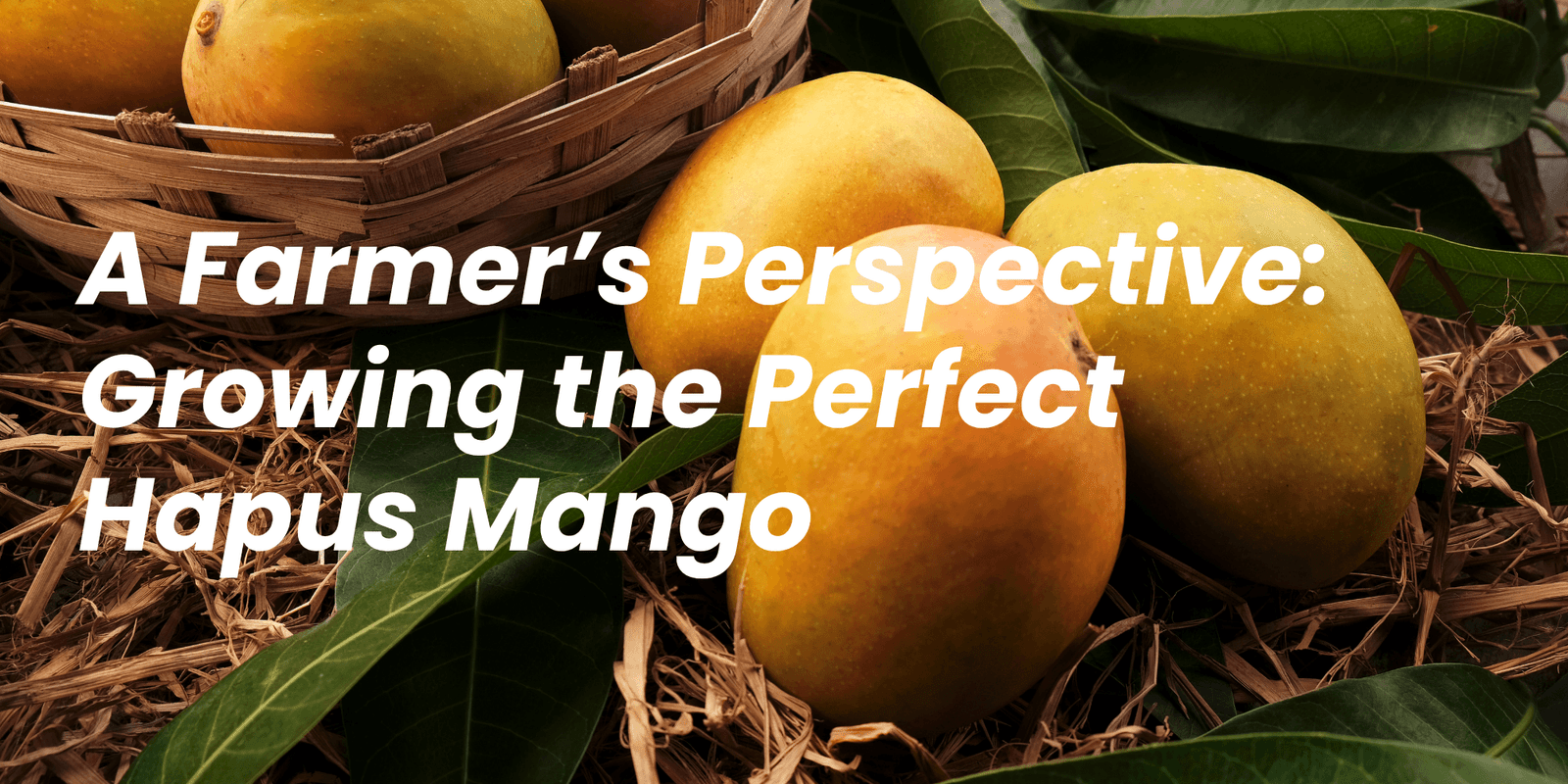
When you bite into a sweet, golden slice of Hapus mango, you taste not just fruit but the hard work of generations. For many farmers in the Konkan belt, especially in Ratnagiri and Devgad, growing Alphonso mangoes (fondly called “Hapus”) isn’t just a seasonal activity—it’s a way of life. Let us understand A Farmer’s Perspective: Growing the Perfect Hapus Mango
The perfect Hapus mango begins with the perfect soil. The laterite-rich red soil of Ratnagiri and Sindhudurg districts, combined with the sea breeze and moderate rainfall, creates a unique environment for this fruit. Farmers here rely on traditional methods passed down over generations, while slowly incorporating scientific knowledge to improve yield without compromising on quality.
Hapus mango farming is highly sensitive to climate. Farmers closely monitor flowering (mohar), which usually begins between October and December. The temperature, rainfall, and even unexpected heat waves can dramatically affect the flowering and fruiting process. A sudden rise in temperature during mohar can burn flowers, resulting in fewer mangoes. This is why careful planning, organic pest control, and timely irrigation are essential.
Unlike many commercial mangoes, true Hapus mangoes are naturally ripened. Farmers use traditional grass beds to ripen mangoes gradually, without using chemicals. This natural process preserves the authentic taste, aroma, and texture that makes Alphonso so special.
Farmers often struggle to receive fair prices, especially when cheap mangoes from other regions are falsely sold as Ratnagiri or Devgad Hapus. However, platforms like Ratnagiri Hapus Store are changing this. By sourcing directly from farms and selling online across India, they ensure that farmers are paid fairly and customers receive genuine, GI-certified Hapus mangoes.
This not only creates trust but also motivates farmers to continue growing high-quality, naturally ripened produce. Over 20,000 customers have been served through this model, proving that with the right system, traditional farming and modern distribution can work hand in hand.
Growing Hapus mangoes is more than a profession—it’s a passion. Farmers spend years nurturing trees, protecting them from pests, and ensuring the fruit meets the highest quality standards. Many even name their trees, tending to them like family.
This dedication reflects in every mango you taste. Behind every juicy bite is a story of patience, perseverance, and pride.
As climate conditions shift and consumer expectations rise, farmers continue to adapt. With help from cooperatives, government support, and customer awareness, they are hopeful that the legacy of Hapus mangoes will not only survive but thrive.
So, next time you savor a Ratnagiri or Devgad Hapus, remember the hands that made it possible. And if you want the real deal—naturally ripened, fresh, and directly from the Konkan farms—head to Ratnagiri Hapus Store. You won’t just be buying mangoes; you’ll be supporting a farmer’s dream.